Workplace Harassment Lawsuit Settlements: 8 Real-Life Situations
It doesn’t matter how the harassment takes place. Federal, state, and local laws protect victims of harassment and help them find justice. Here are eight unique, real-world situations of workplace harassment lawsuits.
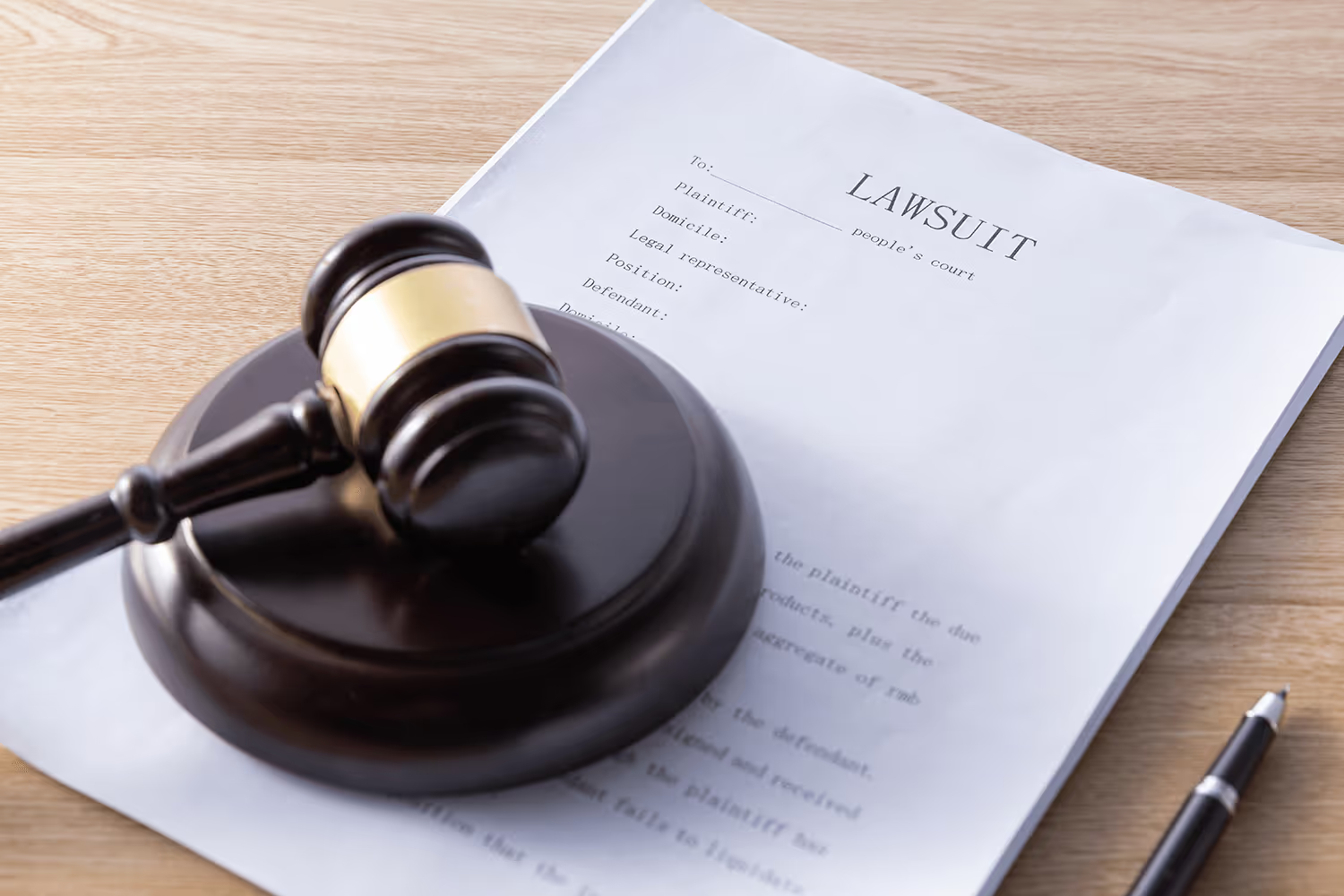
There are three basic types of harassment: verbal, physical, and visual.
Verbal harassment is the most common type, especially because of technology and social media. Physical harassment can be as simple as a gesture or facial expression. It doesn’t always involve unwanted touching. Visual harassment usually comes in the form of pictures or illustrations.
Sometimes people joke around, especially when they worked together daily for several years. They may even prank each other from time to time.
A prank doesn’t constitute harassment. But, there’s a line where jokes become harassment…which is not good.
Jokes and pranks turn into harassment and become problematic, break the law, and open up the situation to lawsuits when…
- The place of employment tolerates the harassing behavior
- The harassment makes the workplace intolerable when it becomes severe and frequent
- Any reasonable could consider the harassment intimidating, antagonistic, and unwelcome
It doesn’t matter how the harassment takes place. Federal, state, and local laws protect victims of harassment and help them find justice.
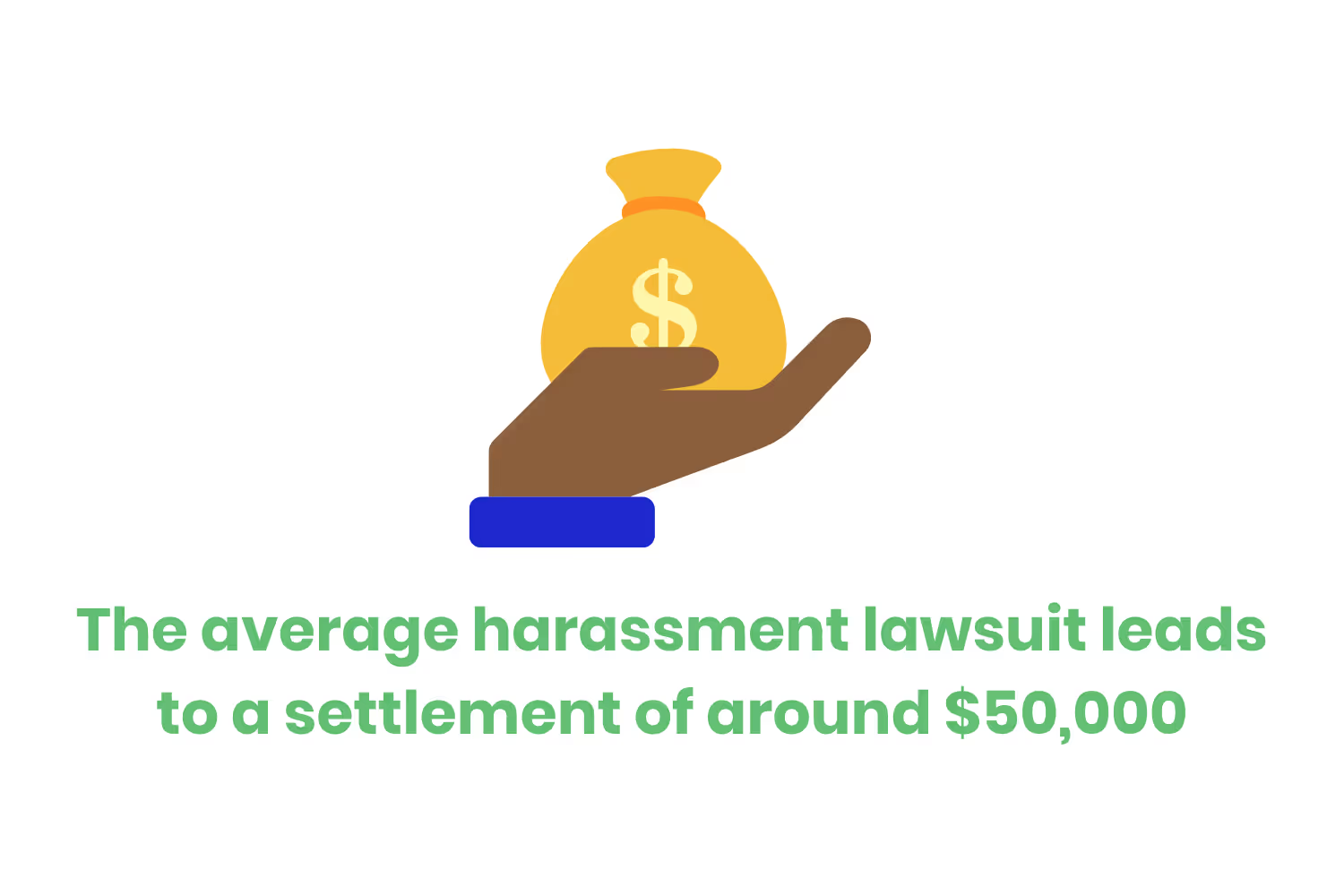
The average harassment lawsuit leads to a settlement of around $50,000 in monetary compensation. But, each harassment case is different.
The news covered many workplace harassment lawsuit settlements. Below are eight unique, real-world workplace harassment lawsuits.
McDonald's - July 2022
In New England, Mr. Coughlin was in charge of operations at ten different McDonald’s Inc franchise locations.
In 2021, the Equal Employment Opportunity Commission (EEOC) filed a lawsuit against Coughlin. The lawsuit claimed a manager in one of the franchises harassed male and female workers for over five years.

If you’re like me, you’re probably thinking to yourself, “What did this person do to these poor employees?”
The manager made lewd comments to, grabbed and bit the employees.
The location finally fired the manager in 2019. The last straw happened when a male employee’s parents went to the police about how the manager hit the employee between the legs.
The Vermont Attorney General’s office joined the investigation into the case in 2021. They accused Coughlin of violating state anti-discrimination laws.
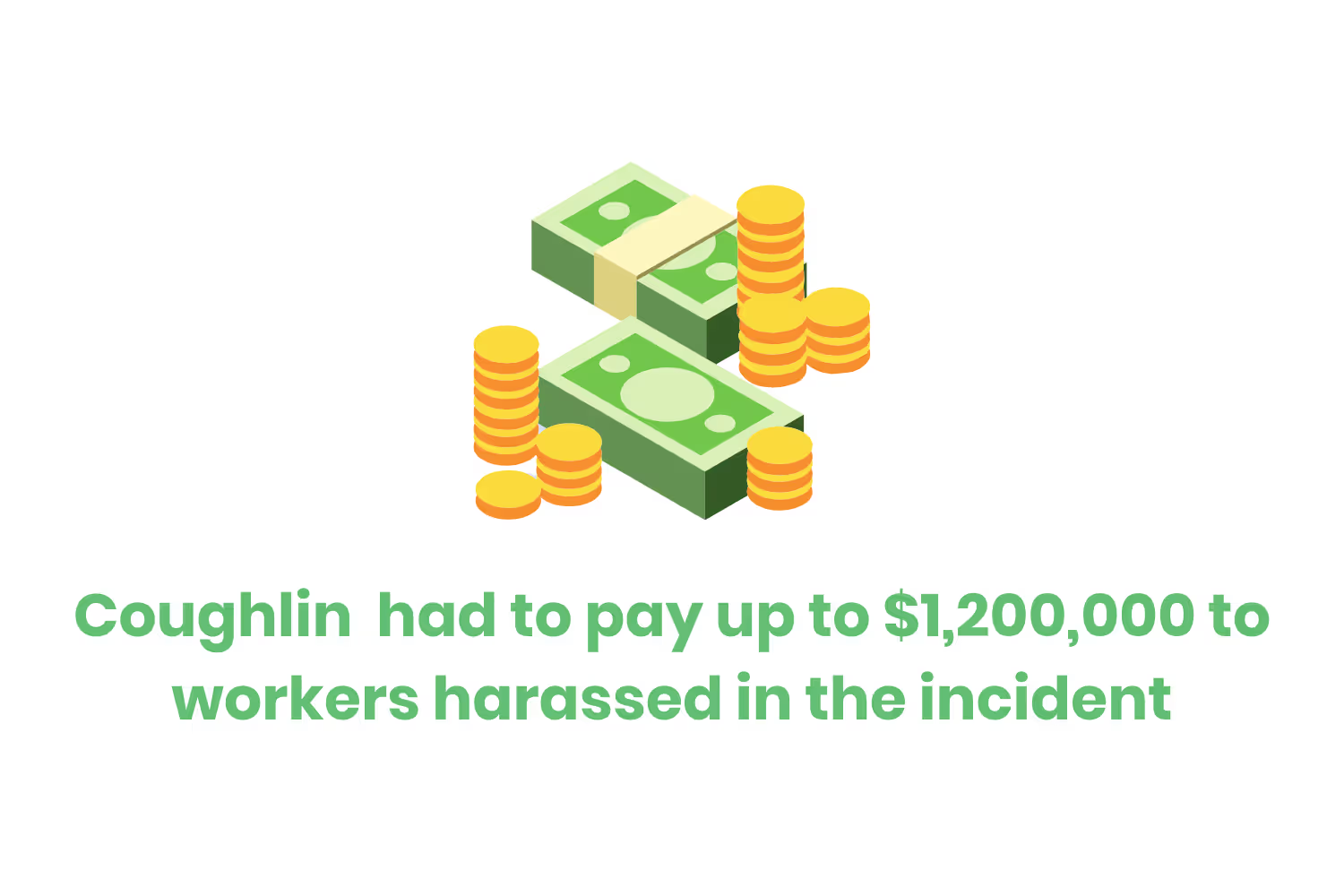
The workplace harassment lawsuit settlements required Coughlin to pay up to $1,200,000 to workers harassed by the manager in question. The agency identified at least ten people eligible for payouts and they expect more people to come forward. Coughlin will need to pay an additional $125,000 in penalties to the state.
Konos Inc - May 2022
The EEOC charged Konos INC, an egg producer located in Michigan, with violating federal law.
The company subjected a female employee to a sexually hostile work environment. They also charged the company with retaliation against the employee because of her complaint.
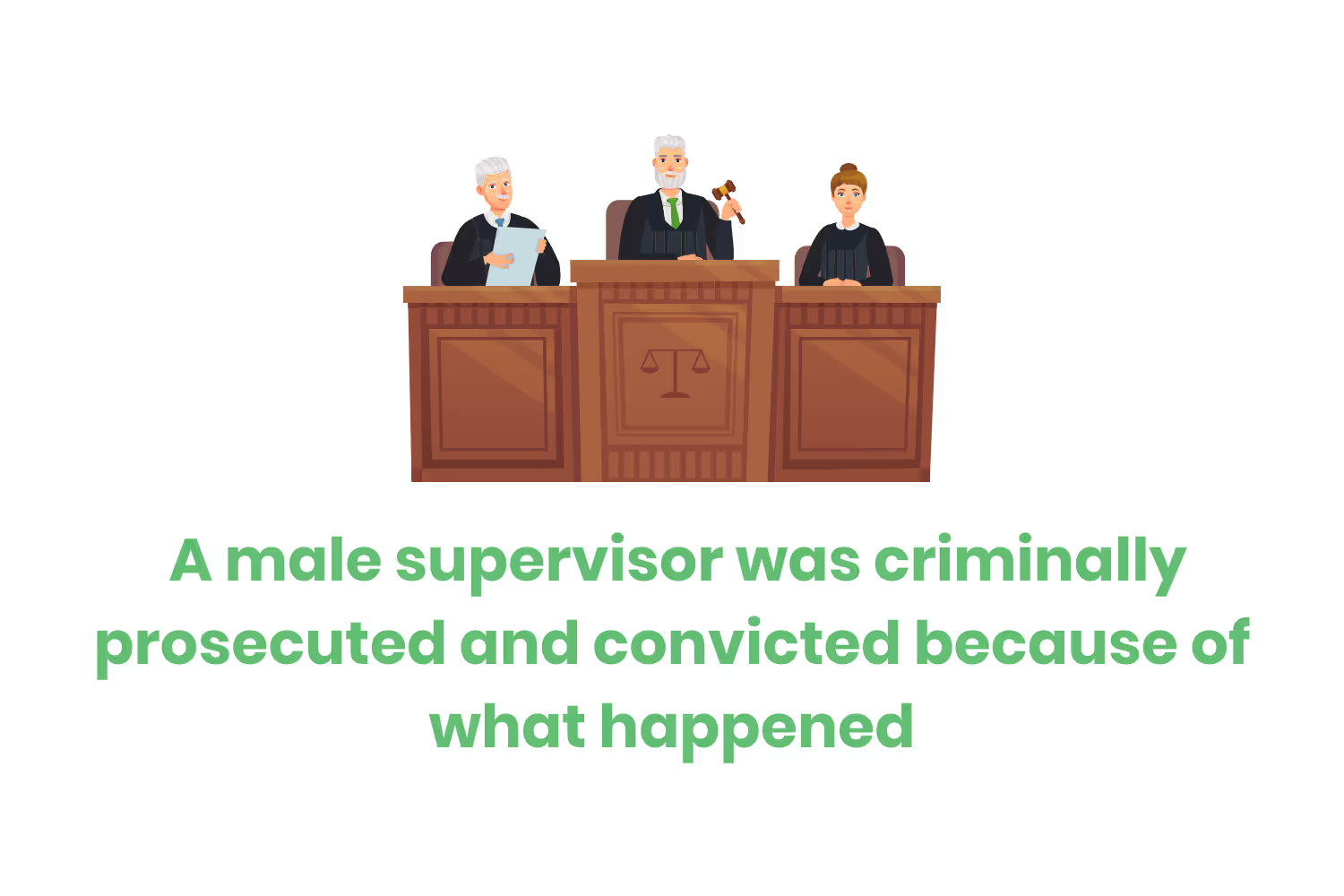
According to the lawsuit, a male supervisor made sexual advances toward a subordinate female employee. The supervisor allegedly sexually assaulted her. This led to criminal prosecution and the conviction of the supervisor.
Despite the employee’s complaints and the seriousness of the conduct, Konos failed to take appropriate action. The company retaliated against the employee by sending her home.
Title VII of the Civil Rights Act of 1964 prohibits employers from discriminating against any individual because of sex. It also protects employees from retaliation against employees who object to discrimination. Sexual harassment is a form of sex discrimination that applies to Title VII.
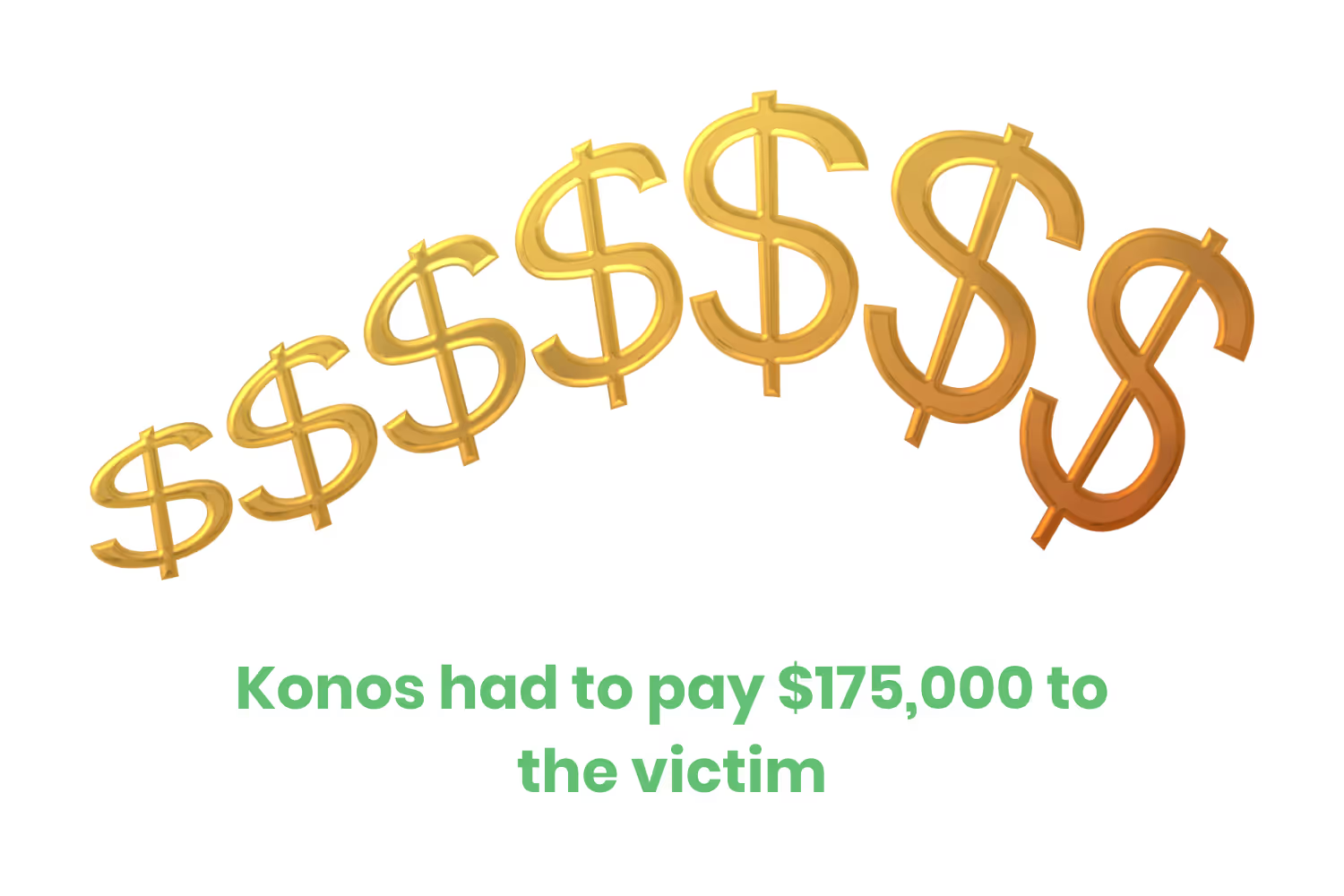
Due to this blatant violation, the workplace harassment lawsuit settlements made Konos pay $175,000 to the victim. In addition to monetary penalties, the company needs to provide…
- Injunctive relief
- Training on sexual harassment
- Compliance-related reporting to the EEOC
S&C Electric Company - April 2022
S&C Electric Company deals with switch and control products for power transmission and distribution. The company’s headquarters are in Chicago.
The EEOC’s lawsuit accused S&C Electric Company of violating Title 1 of the Americans with Disabilities Act. This section prohibits discrimination based on disability.
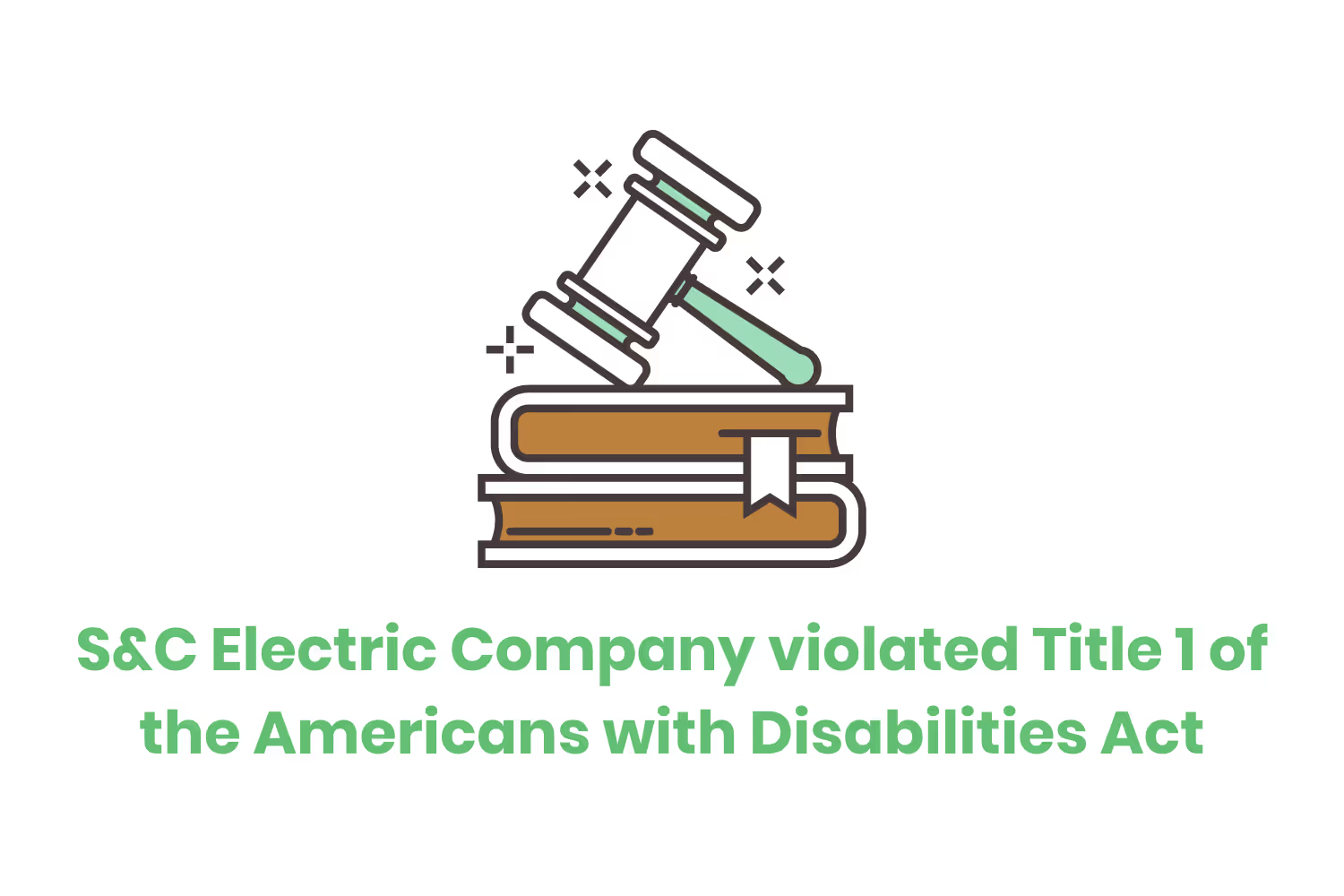
How did the company discriminate against someone’s disability?
A principal designer worked at S&C for over 52 years. The employee received a diagnosis of cancer and later broke a hip. With the medical conditions, he took a medical leave.
Sounds reasonable, right?
Following the long road to recovery, the employee attempted to return to his former position. He provided many doctor notes indicating he could return to his former position.
How did the company discriminate in this situation?
S&C decided to fire the man instead of allowing him to return to work following a perfunctory medical examination by an S&C contracted doctor.
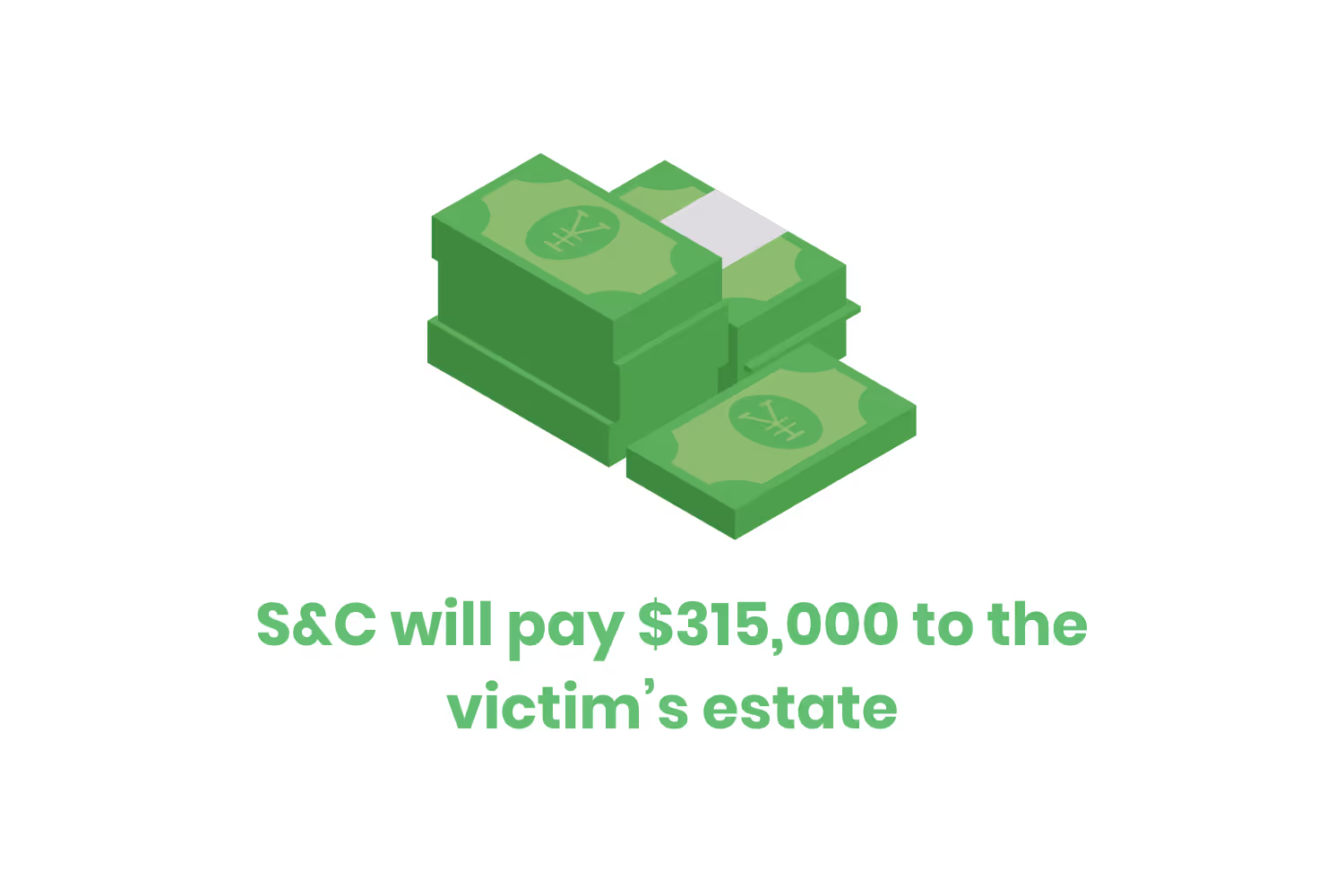
The workplace harassment lawsuit settlements included an 18-month settlement decree. S&C will pay $315,000 to the victim’s estate. The company is also required to maintain and provide the EEOC with records of each terminated employee at its Chicago facility. This came after attempting to return to work following medical leave and making a complaint.
In addition, S&C will need to provide two training courses conducted by an independent organization to managers. All employees responsible for HR and medical evaluations must also have training. The training needs to cover their obligations under the ADA.
Long John Silver - March 2022
The EEOC charged Long John Silver with violating federal laws. The company subjected a teenage female employee at its Centralia, Illinois restaurant to sexual harassment.
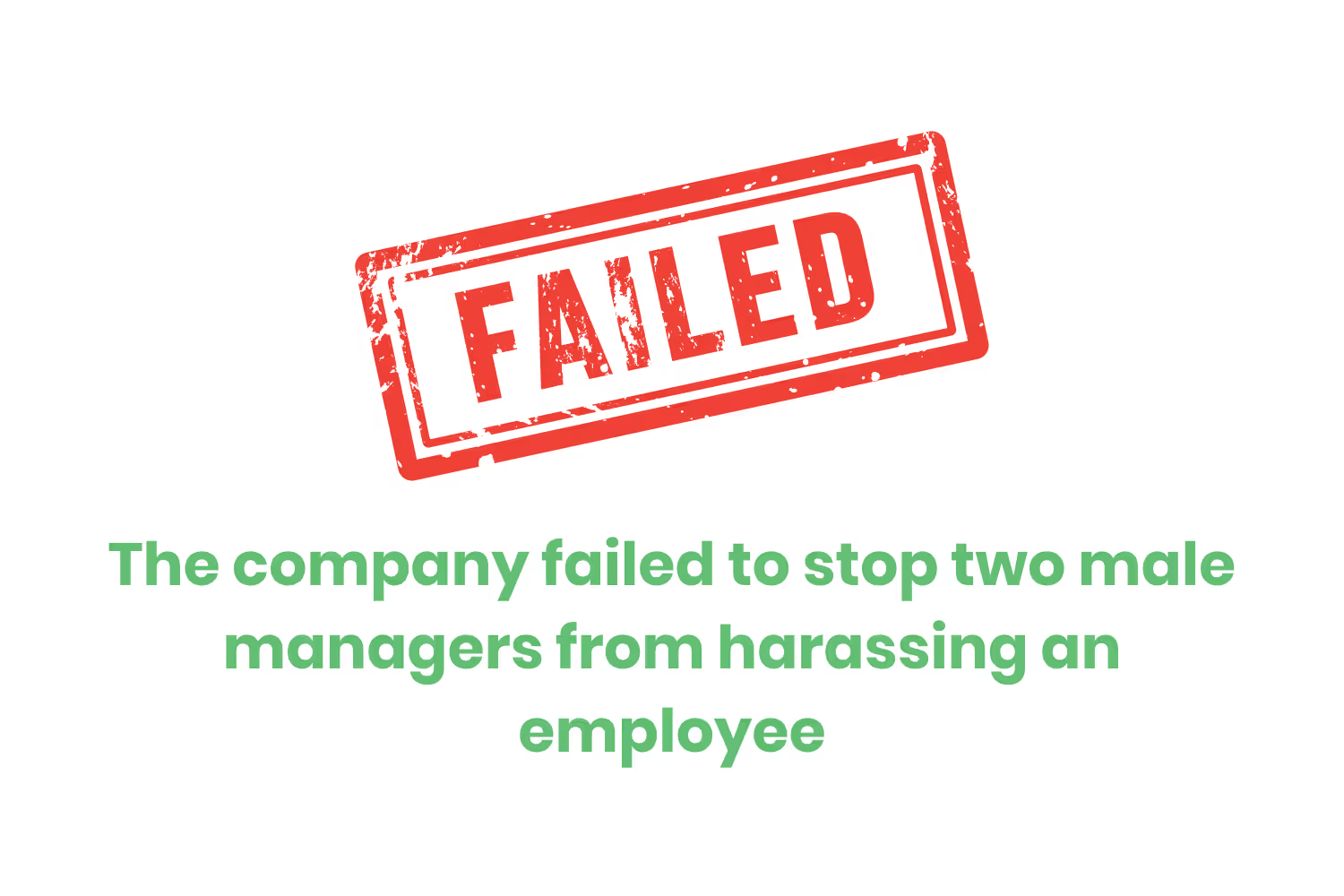
The lawsuit states that the company failed to stop two male managers from harassing the employee. It’s also alleged that Long John Silver retaliated against the teenage employee when she objected to the harassment.
The two adult male managers harassed the teenager through...
- lewd comments
- unwanted touching
- propositions for sex
- sexually explicit text messages and videos
The company refused to investigate the situation after she filed a complaint and reduced her hours as a result.
This situation violates Title VII of the Civil Rights Act of 1964. The EEOC filed suit in the U.S District Court for the Southern District of Illinois. The filing occurred on June 25, 2021, after first attempting to reach a pre-litigation settlement through a conciliation process.
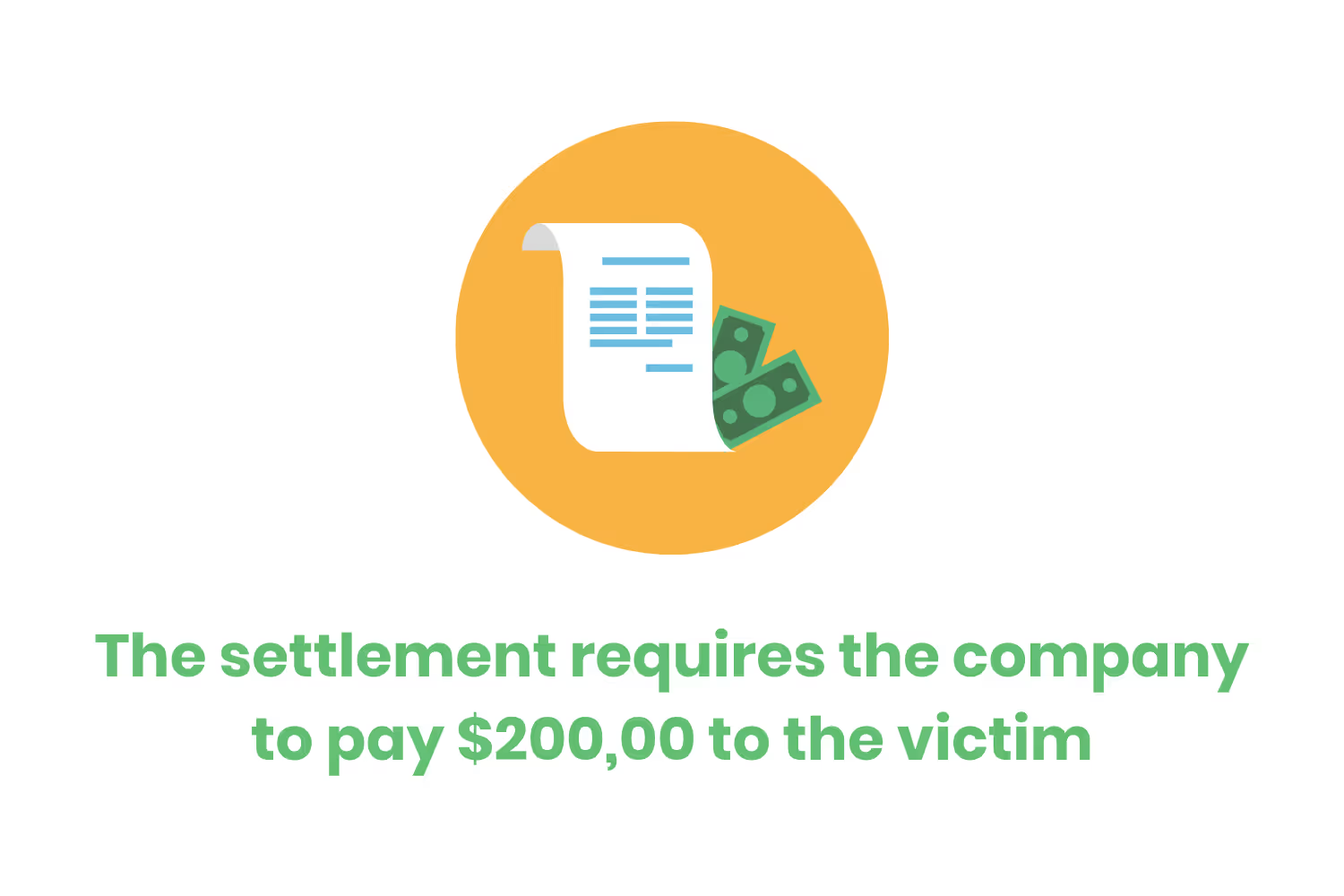
The workplace harassment lawsuit settlements involved a two-year consent decree. It requires the company to…
- Pay $200,000 to the former employee
- Provide harassment prevention policies and training in Title VII’s prohibition on sexual harassment and retaliation.
- Post notices regarding the settlement
- Report periodically to the EEOC for sex discrimination complaints received during the two-year decree
Activision Blizzard - March 2022
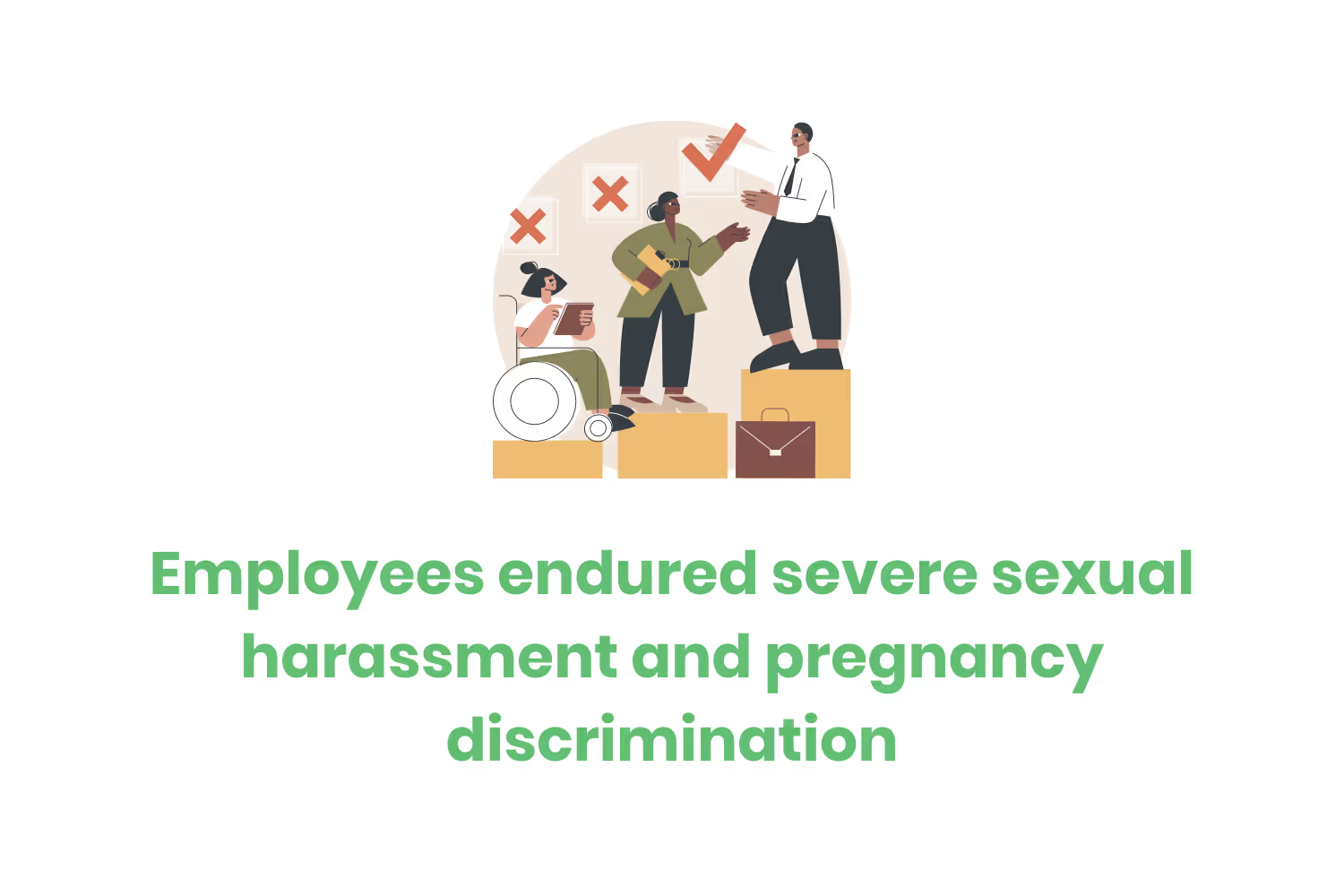
The EEOC filed a complaint in September 2021 after a several-year-long investigation. The investigation revealed that employees at Activision Blizzard endured severe sexual harassment and pregnancy discrimination. The company allegedly also engaged in retaliation against employees who complained.
In March 2022, a California judge publicly announced that she will approve a settlement between the company and the EEOC. Workplace harassment lawsuit settlements included an $18,000,000 fund for eligible claimants employed by the company starting in September 2016.
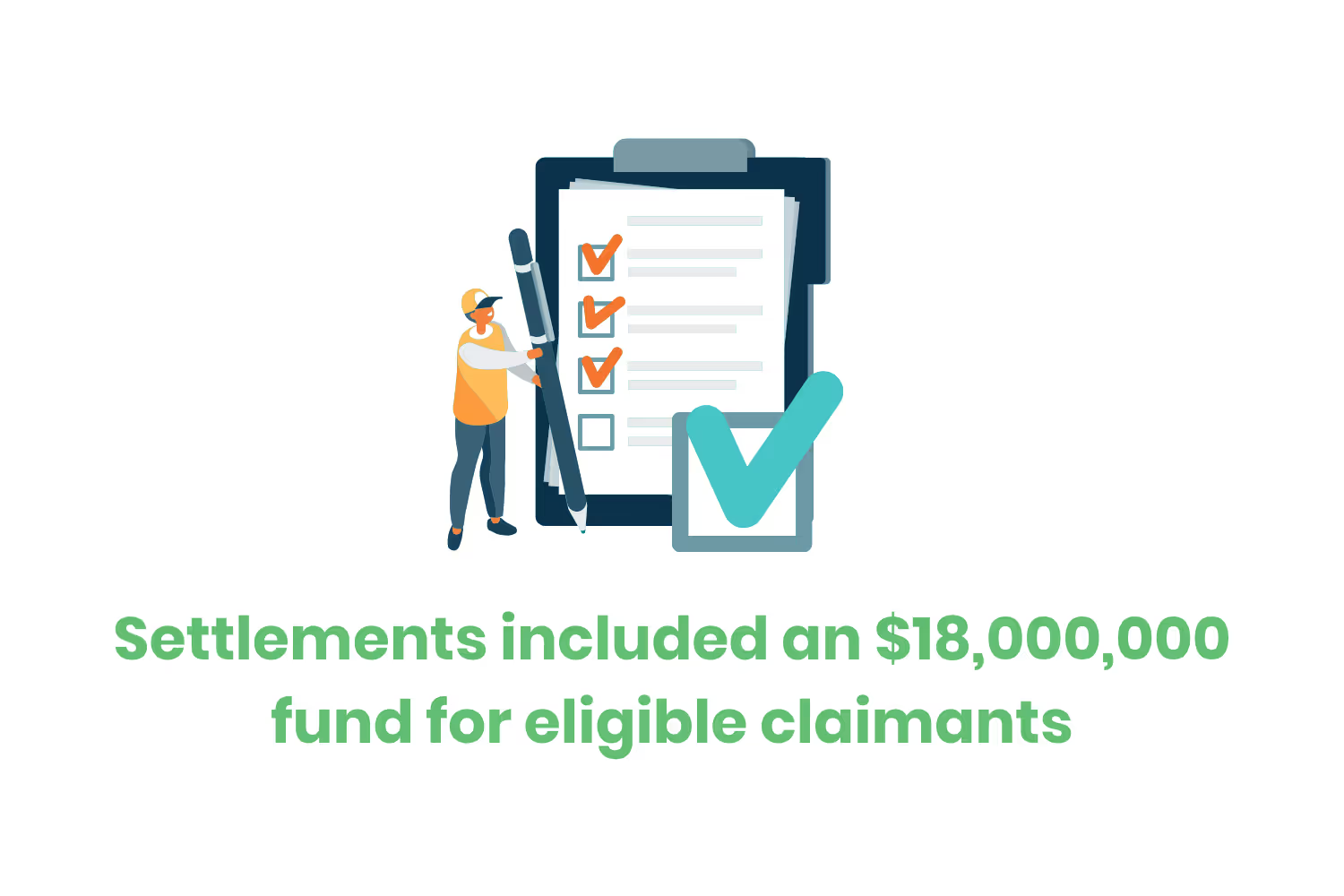
The California Department of Fair Employment and Housing (DFEH) also filed a lawsuit against Activision Blizzard regarding…
- Equal pay violations
- Sex discrimination
- Sexual harassment
According to the paperwork filed with the courts, the DFEH attempted to intervene in the case. However, the judge denied the request.
Lastly, Activision Blizzard is facing another investigation by the Securities and Exchange Commission. The SEC is looking into how the company handled sexual harassment and discrimination complaints.
Saint Clare's Health - March 2022
Saint Clare’s Health hired a pregnant candidate to file for a per diem EMS dispatcher position at a New Jersey facility located in Dover. A few days before the lady’s start date, she became sick and went to the hospital. While hospitalized, she received a diagnosis of preeclampsia. Preeclampsia is a pregnancy-related impairment affecting the circulatory system.
Soon after diagnosis, the employee contacted Saint Claire’s HR department to discuss her illness and what she needed to do now that the situation changed. The healthcare company responded by withdrawing her job offer despite her only needing the minor accommodation of delaying her start date by several days.
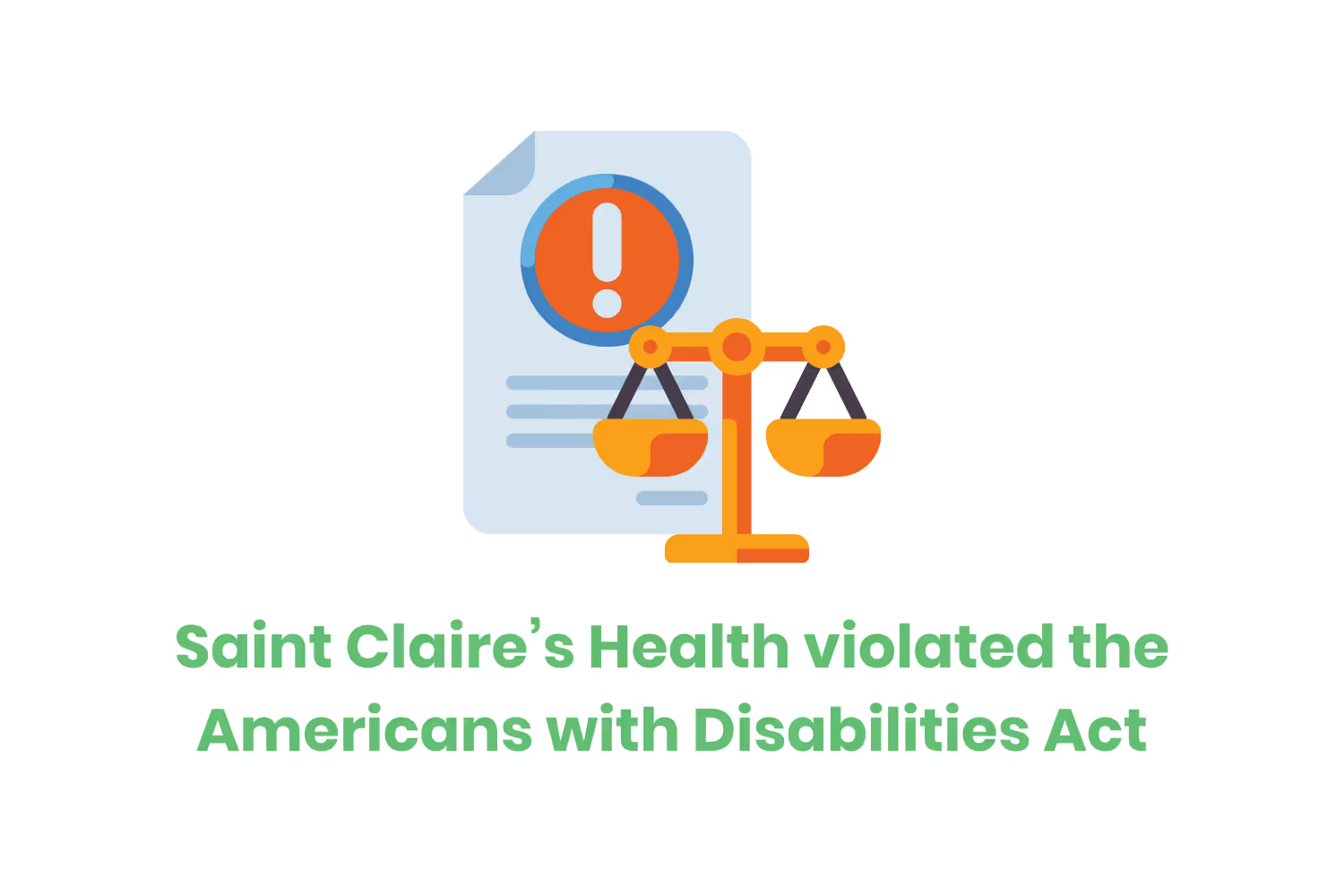
This response from Saint Claire’s Health violated the Americans with Disabilities Act (ADA). The law requires that employees engage with applicants and employees to provide reasonable accommodations for disabilities. It prohibits employers from taking adverse action against qualified applicants and employees based on their disability.
As a result, the EEOC filed a lawsuit in the U.S District Court for the District of New Jersey after attempting to reach a pre-litigation settlement through its conciliation process.
The workplace harassment lawsuit settlements provided $77,550 in lost wages and other damages.

It also provides significant non-monetary relief designed to prevent further discrimination. This includes…
- An injunction prohibiting Saint Clare's Health from discriminating against employees and candidates for employment based on disability
- This includes pregnancy-related impairments
- Updates to the company’s internal policies
- Mandatory training for Saint Clare’s Health employees about federal anti-discrimination laws
- Report to the EEOC on any internal complaints of disability discrimination or receives for the next 2.5 years
Eureka Stone Quarry - February 2022
Eureka Stone Quarry Inc. is a company engaged in mining and sales of sand, stone, and other materials in eastern Pennsylvania. Within the company, an African American heavy equipment operator endured egregious racial harassment from coworkers. This harassment lasted several years. This included…
- Racial slurs
- Threats of violence directed at the Black Lives Matter movement
- Other statements reflecting racial bias and stereotypes
As time passed, the harassment increased and became more severe. The situation eventually peaked when the worker received threats with firearms. One incident involved a harasser firing multiple shots from a rifle on company property near the location of the African American worker. Shots were also tired not long after he drove past the harasser.
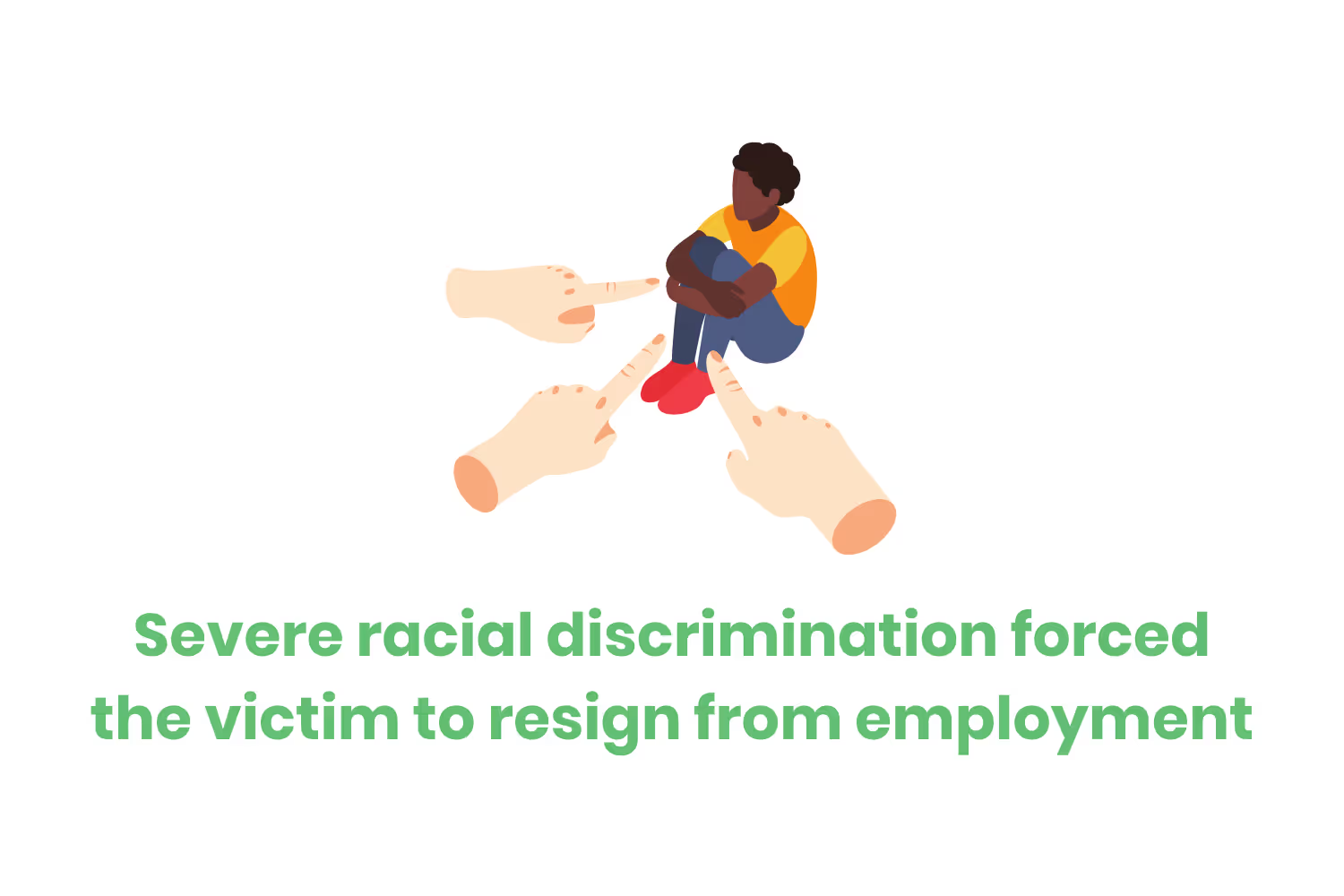
According to the lawsuit filed by the EEOC, Eureka Stone was aware of the racial harassment. The company failed to take action to stop it from occurring. This forced the victim to resign from employment.
This series of incidents, actions, and lack of action violates Title VII of the Civil Rights Act of 1964. The EEOC filed a lawsuit under Title VII in the U.S. District Court for the Eastern District of Pennsylvania. The EEOC tried to reach a pre-litigation settlement before filing suit.
Eureka Stone subsequently agreed to an early settlement of the lawsuit without any federal court adjudication of liability issues in the case. The EEOC opted to dismiss claims against a second defendant, James D. Morrissey, Inc.
The workplace harassment lawsuit settlements included Eureka Stone Quarry paying the former African American employee $58,000 in monetary relief.

The decree also requires the company to implement measures, such as…
- Revised anti-harassment policies and complaint procedures
- Anti-harassment and investigations training
- Appointing a company equal employment opportunity officer
- This person is responsible for investigating and remedying potential harassment and processing full authority to carry out those responsibilities
- Reporting the EEOC of all future complaints of…
- Racial harassment
- Investigations of those complaints
- Remedial actions taken
Ranew's Management Company - February 2022
Ranew’s Management Company is a local, state, and national fabrication, coating, and assembly products provider. The incident in question occurred in a facility located in Atlanta, Georgia.
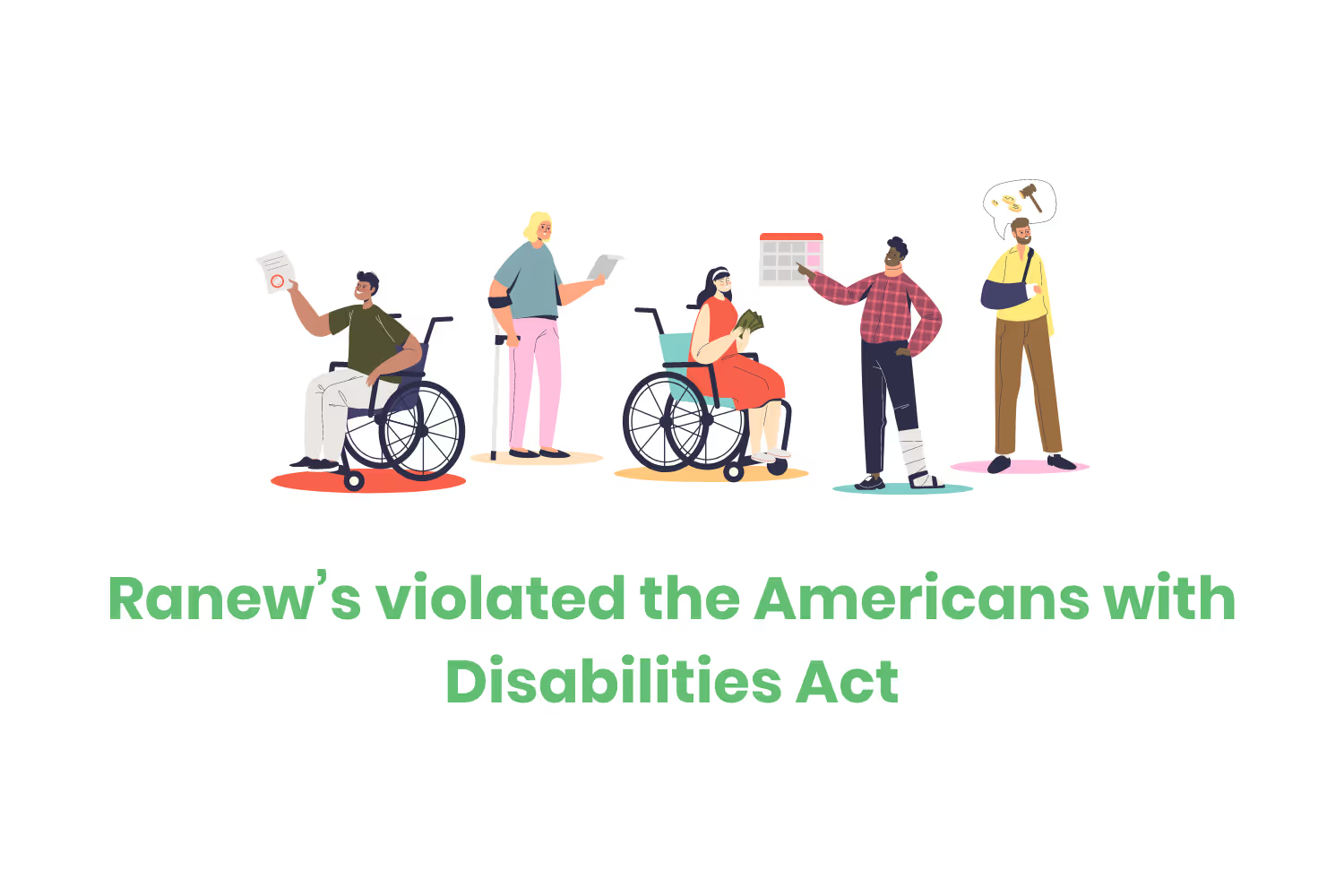
According to a lawsuit filed by the EEOC, Ranew’s violated the Americans with Disabilities Act (ADA). This law prohibits a company from discriminating against an individual based on disability.
So what exactly happened?
An employee informed the company that he recently received a diagnosis of severe depression. Due to his mental health, his doctor recommended that he take three weeks off of work, which he tried to request. The CEO of the company told the employee to take as much time as he needed to get well.
Sounds like a caring employer, right?
Six weeks later, the employee tried to return to work with a paper from his doctor allowing him to return to work. However, the CEO said he couldn't trust the employee to complete the tasks of his job. The CEO proceeded to fire the man.
The EEOC filed the lawsuit in the U.S. District Court for the Middle District of Georgia, Macon Division. They first tried to reach a pre-litigation settlement, to no avail.

The workplace harassment lawsuit settlements involved a payment of $250,000 in monetary damages to the employee. The company also agreed to reporting, monitoring, training, creating, and distributing ADA policies and notice posting.
Conclusion
The EEOC has multiple offices across the country. Each office is responsible for processing charges of employment discrimination, administrative enforcement, and the conduct of agency litigation within each office’s jurisdiction.
After the EEOC helps victims file a harassment lawsuit, the potential settlement will depend on the unique set of circumstances. Workplace harassment lawsuit settlements also depend on the extent and severity of the harassment.
At the end of the day, harassment is never acceptable. If someone endures harassment at work, the at-fault party or the employer can face a lawsuit. Everyone deserves to work in a safe environment. They should never have to fear their coworkers or superiors.
If you are uncomfortable or the workplace environment is intolerable due to harassment of any kind, you have the right to file a complaint. You also have the right to potentially pursue compensation.
Emphasize your product's unique features or benefits to differentiate it from competitors
In nec dictum adipiscing pharetra enim etiam scelerisque dolor purus ipsum egestas cursus vulputate arcu egestas ut eu sed mollis consectetur mattis pharetra curabitur et maecenas in mattis fames consectetur ipsum quis risus mauris aliquam ornare nisl purus at ipsum nulla accumsan consectetur vestibulum suspendisse aliquam condimentum scelerisque lacinia pellentesque vestibulum condimentum turpis ligula pharetra dictum sapien facilisis sapien at sagittis et cursus congue.
- Pharetra curabitur et maecenas in mattis fames consectetur ipsum quis risus.
- Justo urna nisi auctor consequat consectetur dolor lectus blandit.
- Eget egestas volutpat lacinia vestibulum vitae mattis hendrerit.
- Ornare elit odio tellus orci bibendum dictum id sem congue enim amet diam.
Incorporate statistics or specific numbers to highlight the effectiveness or popularity of your offering
Convallis pellentesque ullamcorper sapien sed tristique fermentum proin amet quam tincidunt feugiat vitae neque quisque odio ut pellentesque ac mauris eget lectus. Pretium arcu turpis lacus sapien sit at eu sapien duis magna nunc nibh nam non ut nibh ultrices ultrices elementum egestas enim nisl sed cursus pellentesque sit dignissim enim euismod sit et convallis sed pelis viverra quam at nisl sit pharetra enim nisl nec vestibulum posuere in volutpat sed blandit neque risus.

Use time-sensitive language to encourage immediate action, such as "Limited Time Offer
Feugiat vitae neque quisque odio ut pellentesque ac mauris eget lectus. Pretium arcu turpis lacus sapien sit at eu sapien duis magna nunc nibh nam non ut nibh ultrices ultrices elementum egestas enim nisl sed cursus pellentesque sit dignissim enim euismod sit et convallis sed pelis viverra quam at nisl sit pharetra enim nisl nec vestibulum posuere in volutpat sed blandit neque risus.
- Pharetra curabitur et maecenas in mattis fames consectetur ipsum quis risus.
- Justo urna nisi auctor consequat consectetur dolor lectus blandit.
- Eget egestas volutpat lacinia vestibulum vitae mattis hendrerit.
- Ornare elit odio tellus orci bibendum dictum id sem congue enim amet diam.
Address customer pain points directly by showing how your product solves their problems
Feugiat vitae neque quisque odio ut pellentesque ac mauris eget lectus. Pretium arcu turpis lacus sapien sit at eu sapien duis magna nunc nibh nam non ut nibh ultrices ultrices elementum egestas enim nisl sed cursus pellentesque sit dignissim enim euismod sit et convallis sed pelis viverra quam at nisl sit pharetra enim nisl nec vestibulum posuere in volutpat sed blandit neque risus.
Vel etiam vel amet aenean eget in habitasse nunc duis tellus sem turpis risus aliquam ac volutpat tellus eu faucibus ullamcorper.
Tailor titles to your ideal customer segment using phrases like "Designed for Busy Professionals
Sed pretium id nibh id sit felis vitae volutpat volutpat adipiscing at sodales neque lectus mi phasellus commodo at elit suspendisse ornare faucibus lectus purus viverra in nec aliquet commodo et sed sed nisi tempor mi pellentesque arcu viverra pretium duis enim vulputate dignissim etiam ultrices vitae neque urna proin nibh diam turpis augue lacus.




